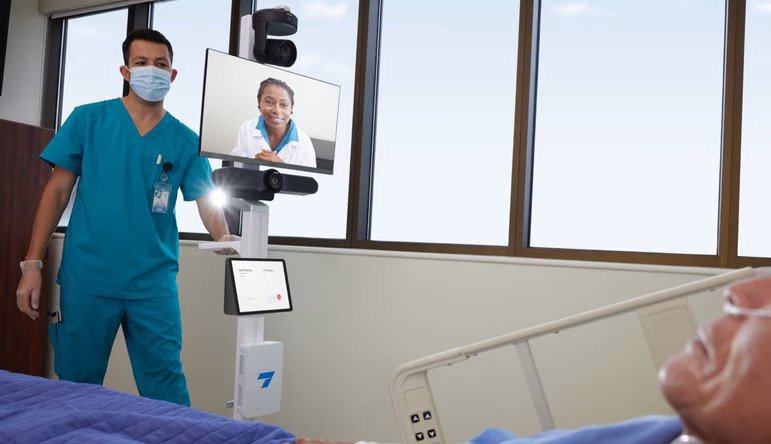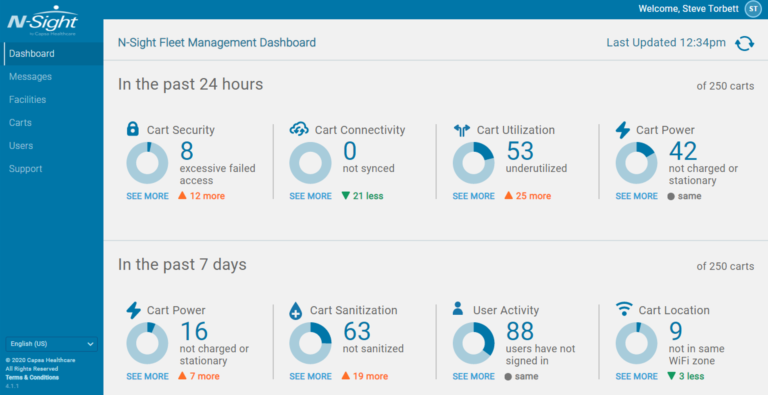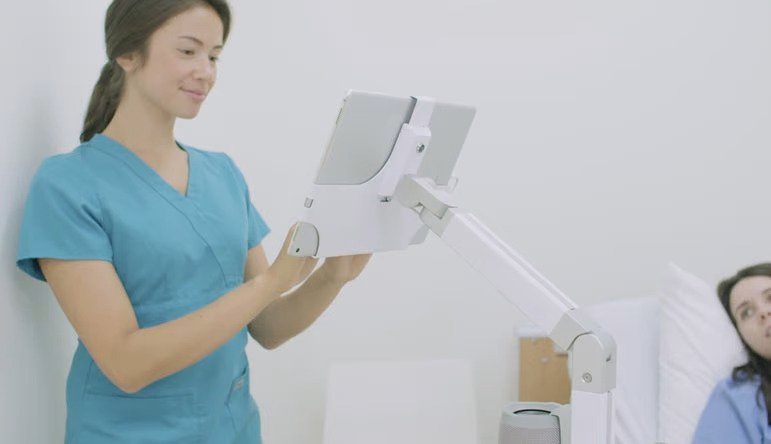The Future of Mobile Workstations
Mobile computer carts (also known as Workstations on Wheels or WOWs) in healthcare settings are becoming more robust, lightweight, and simple to use. Their streamlined design is topped only by their adaptability. Mobile workstations help carry what caregivers need most often to deliver patient care, thereby saving them critical steps. They also are designed for clinicians to easily access electronic medical records (EMR). A mobile computer cart that is well designed helps caregivers make better patient care decisions and avoid errors. There have been many recent advancements to WOW technology, and there are many developments to come.

Remote Communication
The COVID-19 response has increased the usage of telemedicine carts with advanced communication and video capabilities. Telehealth expansion to connect patients in hospitals and aged care homes with their families and outside care providers, for instance, is far-reaching. Workstations can include dual monitors, high-definition cameras, and a wide assortment of specialized, plugged-in instruments to examine a patient’s throat, ears, skin, and eyes.
Tryten’s mobile telemedicine carts make telehealth communications efficient and seamless. The carts combine stylish design features with practical technical solutions. The end product is a workstation that allows providers to deliver high-quality virtual care in various healthcare settings.
Power Capabilities
Battery power is helping the rapid expansion of mobile computing. The newest lithium batteries are highly evolved since the batteries of 5-10 years ago, which just seemed to cause endless frustrations and headaches. There is also an increasing number of lightweight LED monitors and tablets being used instead of heavier devices, which decreases the load and strain on batteries. Facilities are now actively investing in more power outlets, internet access points and better connectivity.

Fleet Management Software
It can be difficult for hospital IT teams to manage a fleet of point-of-care workstations spread out across their facilities’ campuses. Many hospitals even have to manage carts at remote locations where there is no tech support onsite. Meeting those challenges required the evolution of remote fleet management software, such as Capsa’s N-Sight software. This software provides real-time data on cart location, battery life, availability, and user data. It helps the IT department make smart decisions and be proactive. Without this fleet management software providing real-time data, IT may be forced to buy more carts, which adds further cost, more devices to manage, and out-of-service cart frustrations.
Simple is Better
Most experts project an increasing use of handheld devices. Essentially this means de-coupling the computer from being attached to keyboards, displays, other devices. This could be done by using a removable tablet rather than a PC. We also see trends to small, light-duty carts for more basic uses. One example would be a simple tablet-based rounding cart that healthcare providers use to make their rounds in a hospital. Experts also predict a system of different devices and carts that work together, instead of forcing a single one-size-fits-all for every task.

The Tryten tablet & medical carts are lightweight and easy to manoeuvre carts which ensure safe and secure clinical workflows. They are perfect for today’s trends toward iPads, Surfaces, and digital medical devices.
One thing is certain in this rapidly changing landscape: printDATA will continue to evolve and develop new and innovative mobile computing solutions, in-step with our customers’ changing needs.